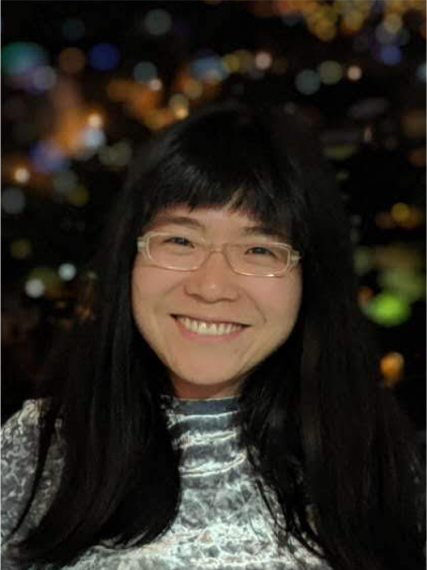Rui Huang

Find Related People by Keyword
Instrumentation
NMR spectroscopy, other biophysical techniques, biochemical assays
Education and Employment Background
Dr. Rui Huang received her BSc degree in Chemistry from Peking University, China, and completed her PhD at the University of Michigan where she was trained in protein NMR spectroscopy under the supervision of Prof. Ayyalusamy Ramamoorthy. She then continued her postdoctoral research under a CIHR fellowship in Prof. Lewis Kay’s laboratory at the University of Toronto. Dr. Huang joined the Department of Chemistry at the University of Guelph as an Assistant Professor in 2020.
Research Themes
The Huang lab is interested in understanding molecular mechanisms of protein complexes, and particularly large protein assemblies, through studying their structures, dynamics, and functions. She uses advanced Nuclear Magnetic Resonance (NMR) techniques in combination with other structural biology tools, such as cryo-Electron Microscopy, as well as other biophysical and biochemical techniques to determine the 3D structures of the proteins, study protein-protein interactions, characterize their functional dynamics, and provide information and strategies to design therapeutics for intervening their functions. Key research themes include:
- Mitochondrial protein degradation machines. Mitochondria is the “power plant” of eukaryotic cells and plays prominent roles in a number of metabolic and signaling pathways. Functions of mitochondria rely on proteostasis in the organelle which is maintained via an intricate network of mitochondrial protein degradation machines. Among these proteases, there are two AAA proteases (i-AAA and m-AAA, in dashed boxes) that play essential roles in mitochondrial homeostasis. They provide surveillance on both surfaces of the mitochondrial inner membrane by removing damaged/misfolded proteins. They also regulate mitochondrial biosynthesis, metabolism, and dynamics by specific proteolysis. Huang seeks to gain structural and dynamic insights on these two proteases and unravel mechanistic details about how they function.
- AAA+ ATPases. AAA+ ATPases are a versatile class of molecular machines which transform chemical energy of ATP hydrolysis to mechanical forces to remodel substrates and achieve various cellular functions. The Huang lab is interested in exploring the category of AAA+ proteins that are involved in unfolding protein substrates and preparing them for proteolysis, such as VAT and p97. She seeks to understand the interplay between these molecular motors and their substrates as well as their cofactors using NMR and various other techniques.
Highlights
- Member of editorial board of Biophysical Chemistry journal, 2020
- NSERC Discovery Grant, 2020
- CIHR Postdoctoral Fellowship, 2018
- Chemistry Research Excellence Fellowship (University of Michigan), 2014
Media Coverage
Protein machines
- CEPS News: Molecular Research Sheds Light on Disease